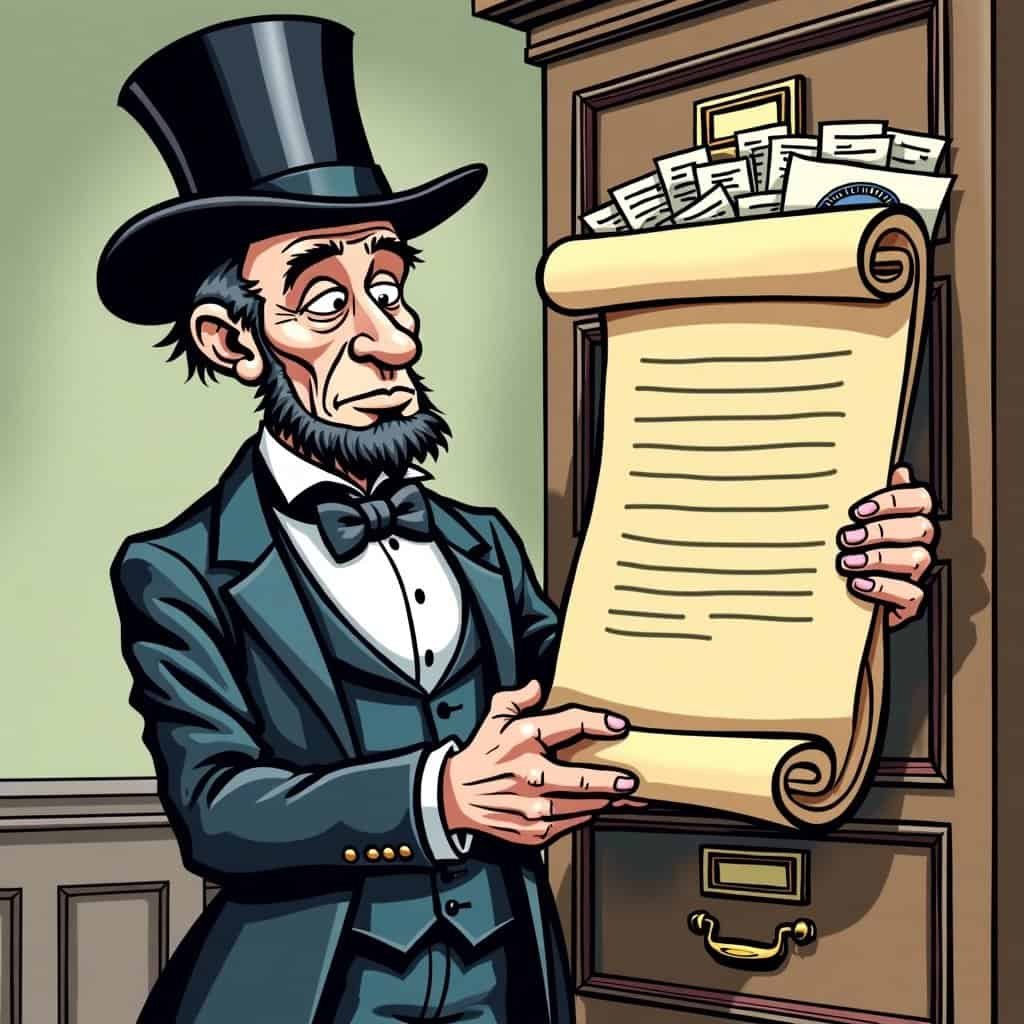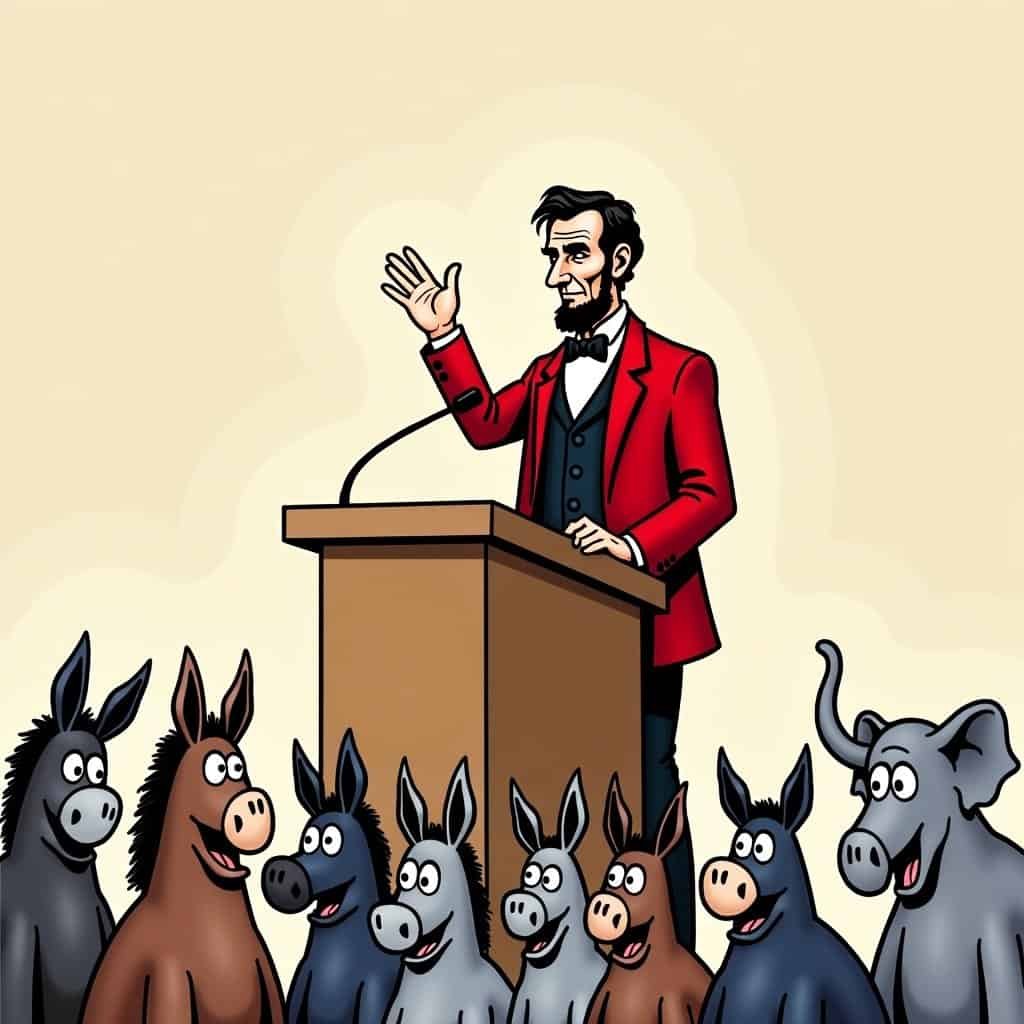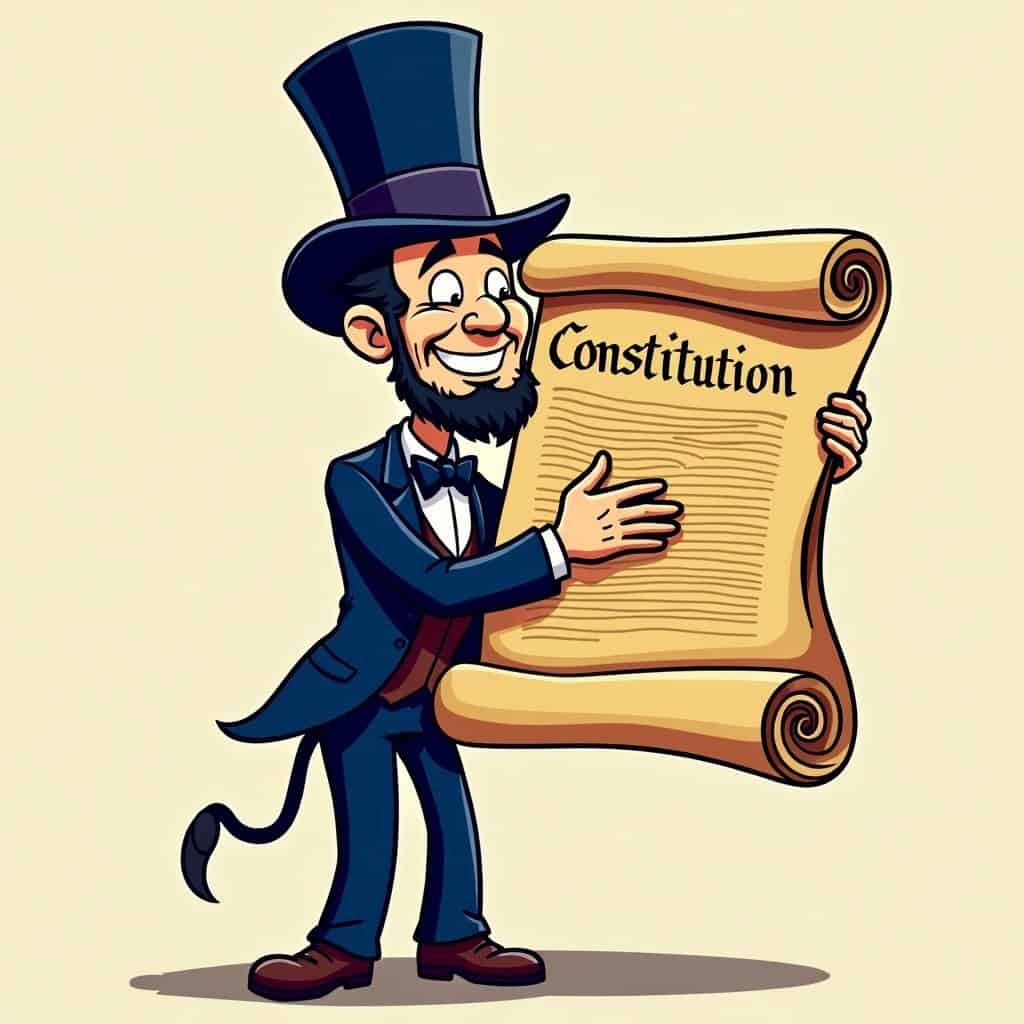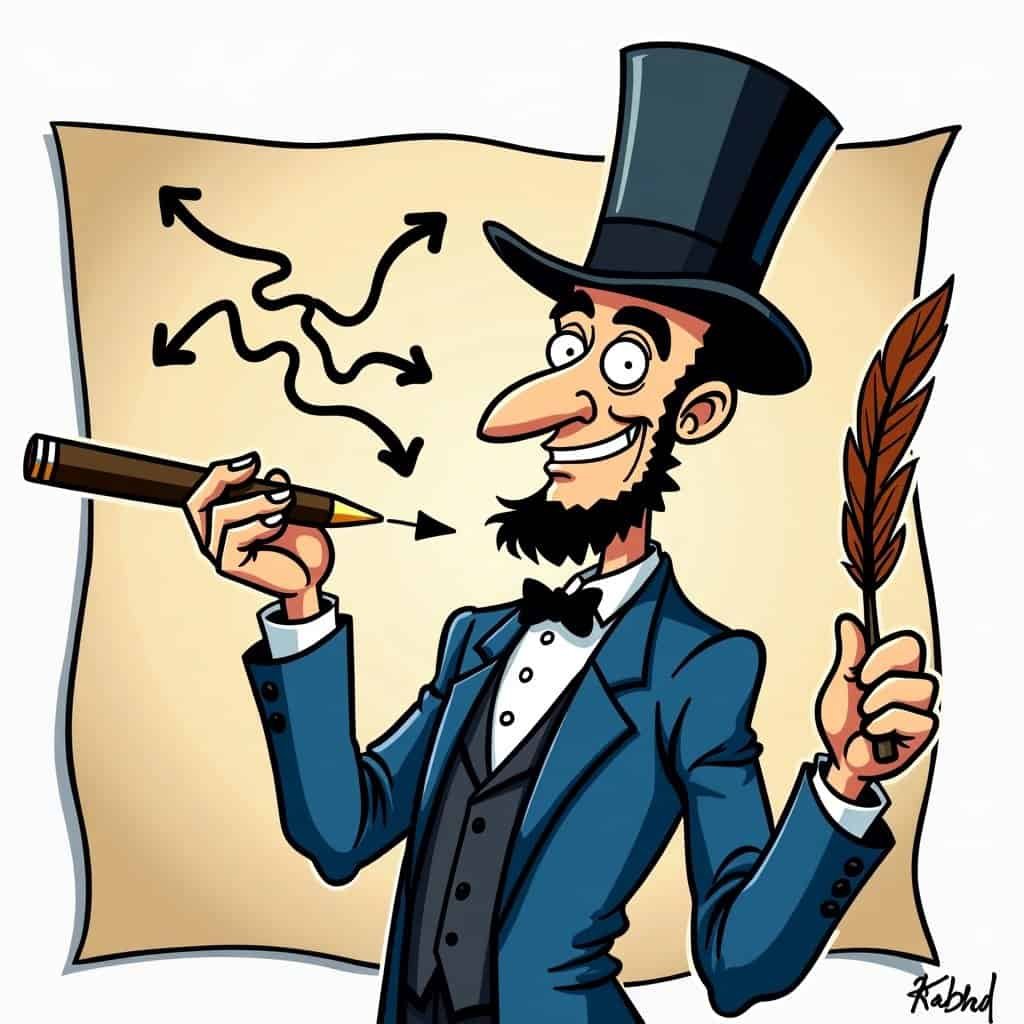Ah, Abraham Lincoln, the man with the top hat that could probably rival a skyscraper if one was ambitious enough to compare. Now, let’s talk about a concept that’s as old and persistent as debates over the best BBQ condiment: limited government during wartime. A topic both riveting and befuddling as Lincoln’s beard configuration.
During those dramatic curtain calls of the Civil War, our 16th president had his hands tied yet somehow managed to pull a few Houdini acts that had even his critics scratching their heads. Turns out, keeping the government in check while fighting a war is like trying to juggle flaming torches while riding a unicycle. Exciting? Sure. Easy? Not so much.
President Lincoln, a fan of small government, believed in letting folks live their lives without Uncle Sam breathing down their necks. But as the war dragged on, he realized sometimes you gotta roll up your sleeves and get your hands dirty. It’s like trying to bake a cake with one arm tied behind your back – you can do it, but it ain’t pretty.
Lincoln’s Wartime Strategies
Lincoln’s approach was like a high-wire act. He had to expand federal powers to keep the country from falling apart, but he also wanted to keep the government from getting too big for its britches. It’s like trying to put out a house fire with a water gun – you gotta get creative.
Lincoln’s Balancing Act
- ✅ Preserved the Union
- ✅ Expanded federal powers (temporarily)
- ✅ Emphasized state sovereignty
- ✅ Minimized big government
- ✅ Maintained focus on core values
The Emancipation Proclamation is a prime example of Lincoln coloring outside the lines when he had to. He knew that sometimes you gotta break a few eggs to make an omelet, especially when that omelet is freedom for millions of people.
Unlike today’s politicians who think throwing money at problems is the answer to everything, Lincoln showed us how to handle tough times like a pro: be patient but firm, give states some breathing room, but don’t let things spiral out of control.
Lincoln Through a Modern Lens
Would Lincoln’s methods raise a few eyebrows today? Maybe. But let’s not forget, he was dealing with a country that was tearing itself apart faster than a pack of wolves on a steak dinner. As conservatives often point out, when the stakes are high, you gotta find that sweet spot between giving states their freedom and making sure the country doesn’t fall apart at the seams.
Lincoln’s careful expansion of power teaches us that you don’t just throw open all the doors and invite everyone to the party when your own house is on fire. It’s like the conservative playbook says: keep the government small, but make it count when it matters.
Conservative Principles in Action
| Principle | Lincoln’s Application |
|---|---|
| Limited Government | Expanded powers only when necessary |
| State Sovereignty | Respected state rights while preserving the Union |
| Individual Liberty | Emancipation Proclamation |
| Fiscal Responsibility | Managed wartime economy efficiently |
So, next time you’re chowing down on a juicy burger and the topic of limited government during wartime comes up, remember old Abe’s balancing act. Tip your hat to the man – not just for that epic beard, but for steering the ship through stormy seas while making sure Lady Liberty’s torch stayed lit.






